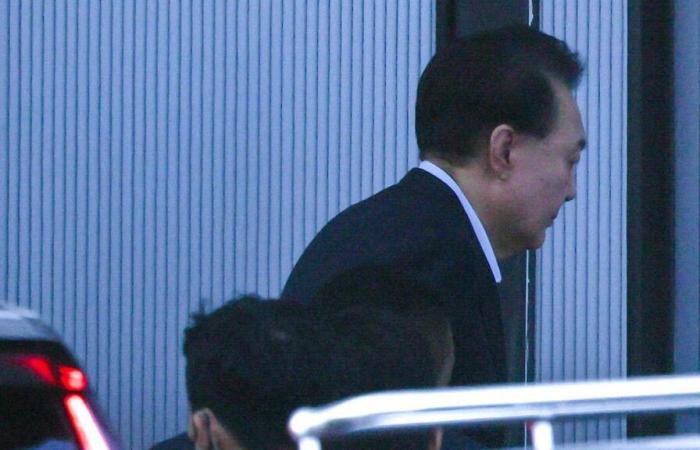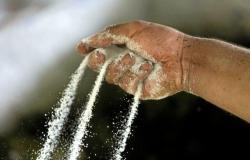“I decided to respond to the Corruption Investigation Office (CIO). » It is very early, this Wednesday, January 15, when South Korean President Yoon Suk-yeol resolves, in a video message, to surrender to the authorities. It took two arrest warrants and more than 3,000 IOC investigators, who went to pick him up before dawn, to put an end to 33 days of a surreal political game of hide and seek. Flanked by police officers, heads bowed, hands that we can imagine are restrained… The photo of the arrested president, a humiliation, has been playing repeatedly since this morning in the South Korean media.
His arrest puts an end to a crisis exposing the fragilities of a young democracy in the land of Morning Calm. On December 3, in a surprise speech, Yoon Suk-yeol proclaimed martial law for the first time in 40 years, citing the threat of “North Korean communist forces.” This radical gesture, presented as a necessary measure to “protect liberal South Korea”, comes in a tense political context, marked by a head-on confrontation between the conservative head of state – member of the right-wing Power to the People party – and a National Assembly dominated by a center-left opposition.






